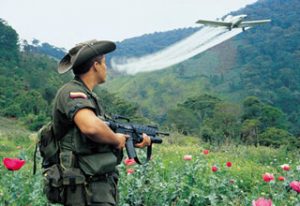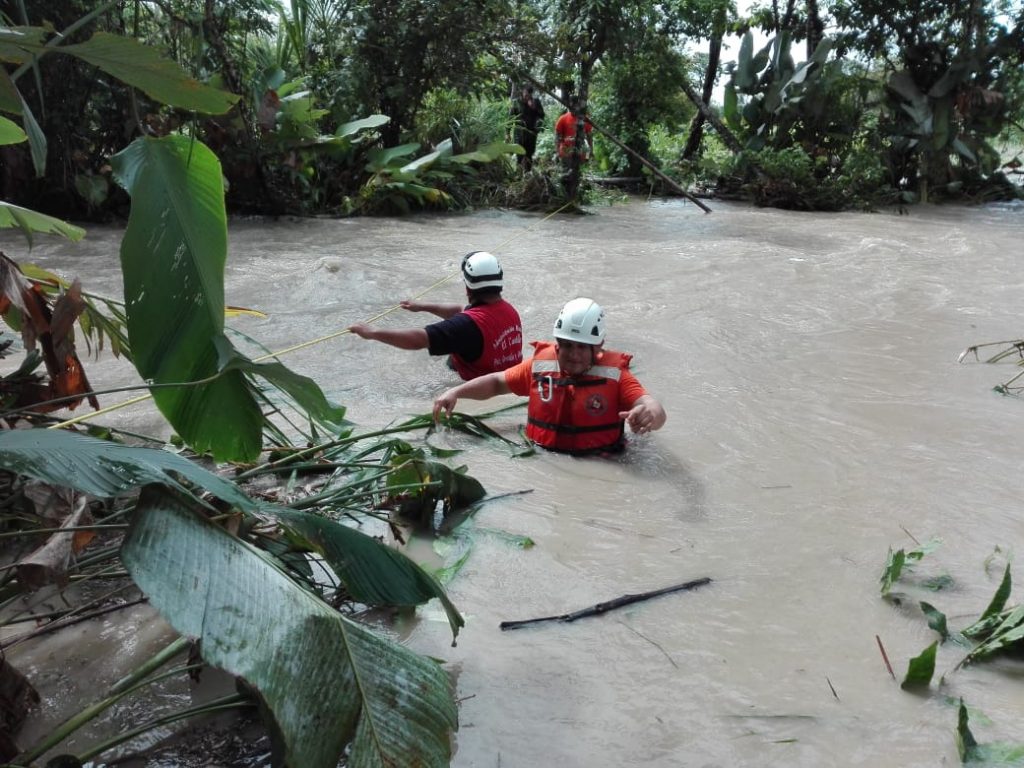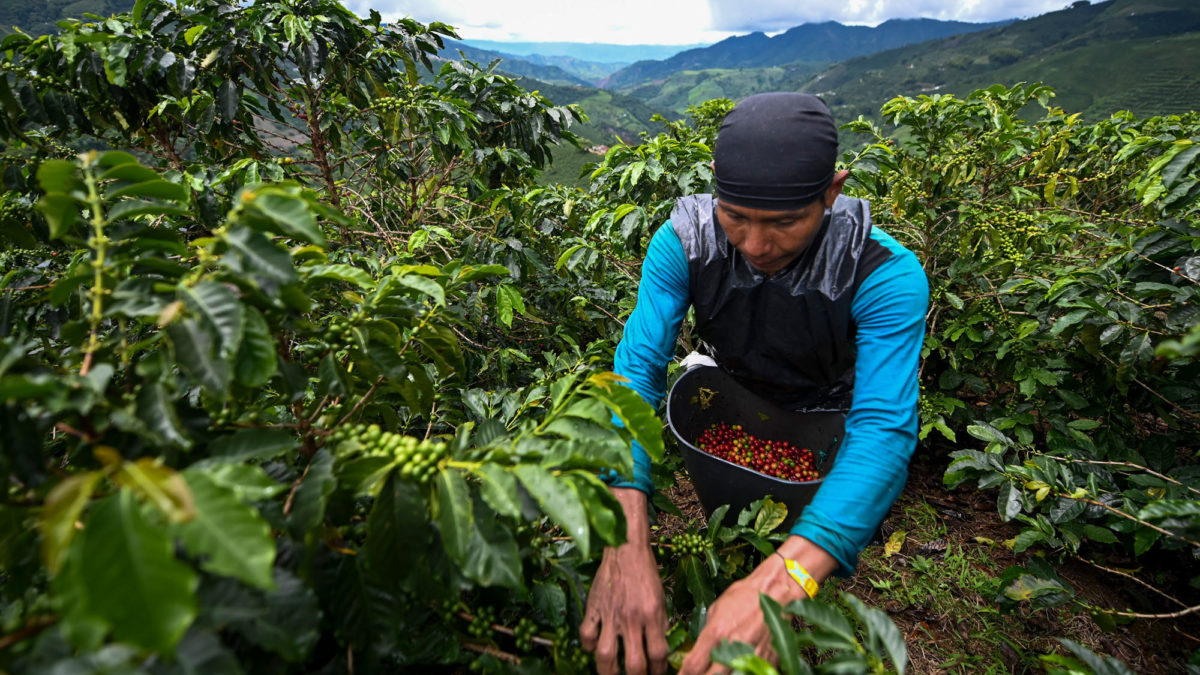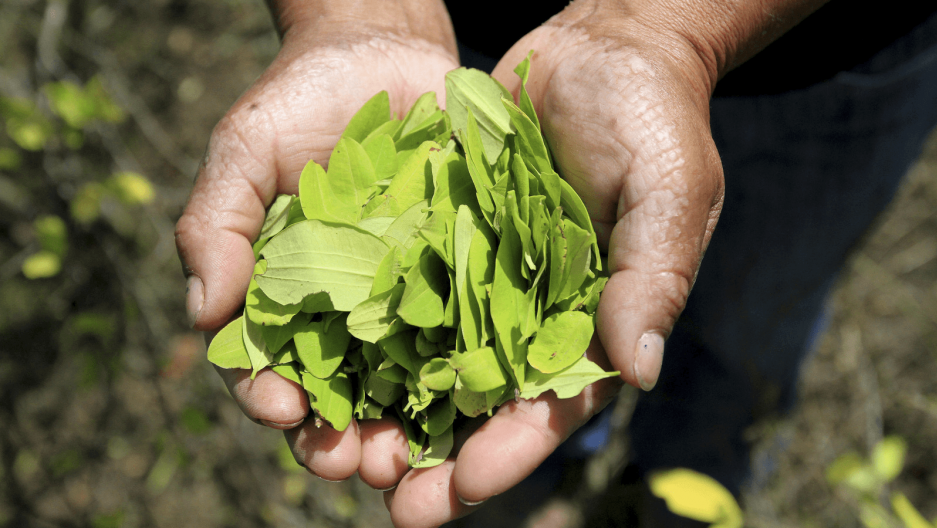I. Flooding
Weather historian Christopher Burt claims that Puerto Lopez in Colombia’s Meta department is the wettest place on earth.
Indeed, this time last year, grey water from the Guaviari, Ariari and Guaybero rivers surged through the streets of the Meta department taking homes and lives. The flooding ravaged more than 13,000 families and 21,000 hectares of agriculture. The relief effort, which included repairing a highway between Bogotá and the eastern plains, was stalled for weeks as landslides inundated roads. As a result, virtually one third of Colombia was cut off from the rest of civilization.
This week, heavy rains are once again causing sudden flooding and mudslides in Meta. People are fearing the worst. So far, 92 families have been impacted.
II. Drought
Due to climate change, violent deluges of rain are becoming both more common and intense in Colombia. Yet, the global phenomenon is also making dry seasons hotter, longer and more severe – even in the Meta Department. How is this possible? Instead of mild variation in weather in which rainfall and sunshine are predictably interspersed, we’re seeing a rise in extremes interrupting extremes.
Moreover, climate change heightens the impacts of El Niño and La Niña (ENSO), which dramatically increase and decrease precipitation patterns at different points of the ENSO cycle. Indeed, droughts in the Meta department have created the conditions responsible for raging forest fires and the spread of dengue fever.
III. Agricultural Insecurity: Coffee as a Case Study
Both drought and heavy rain are catastrophic for many farmers. For example, drought reduces not only coffee production, but also the size and density of coffee beans. Because yields of this quality are not adequate for export, coffee growers are forced to sell to the local market. This necessitates lower prices. The combination of depressed yields and slashed prices is economically devastating.
However, it was brief deluges of rain that enabled leaf rust to thrive, almost killing Colombia’s $2.6 billion coffee industry in 2008. Leaf rust is caused by the hemileia vastatrix fungus, which needs 24-48 hours of continuous heavy rain to infect a plant. While there is no cure to leaf rust, there are new varieties of rust-resistant coffee crops. Unfortunately, it takes three years for said trees to mature. Thus, only the wealthy – able to afford three years sans coffee income – can adapt.
IV. Resilience of Coca
More generally, most crops favor specific temperature and precipitation patterns. Climatic deviation from these patterns therefore threatens agricultural livelihoods. Yet, according to the Scientific America, cocaine will survive climate change.
Due to an elaborate root system, the coca crop is relatively resistant to flooding – especially when compared to other crops commonly grown by peasant farmers in the Andes, such as maize, yucca, plantains, and peanuts. Moreover, a heavy wax cuticle shields coca from water loss, making the crop able to withstand drier periods.
The resiliency and high value of coca in tandem with the falling profitability of legal agricultural activity make coca cultivation alluring. One farmer laments, “legal crops don’t bring any income and I have a family and need to provide for them. The coca makes it possible for me to send my children to school.”
V. Conflict
Today, Colombia produces more coca than ever. In January 2020, the government resumed plans for aerial glyphosate fumigation of coca, which has been linked to liver disease, birth defects, reproductive problems and even cancer. However, according to Colombia’s High Commissioner for Peace, replanting occurs at a rate of between 50 and 67 percent.
In February, two soldiers were killed after trying to clear out communities living in La Macarena’s nature reserve in the Meta department. The soldiers, at the behest of the environmental ministry, claimed the communities were “deforesting to sow coca.” The locals, however, decried that the military was “trying to evict them from plots where they had been living for decades.” After the confrontation, a forest fire broke out.

In June 2020, roughly 50 US soldiers were deployed to Colombia in order to to stymie drug production and trafficking. That same month, Meta’s Omega Joint Task Force – now receiving assistance from the US soldiers – injured six peasants in an attempt to carry out forced coca eradication.
Colombia’s peace is ever fragile. Although climate change continues to plunder agricultural security, rural reform is at a standstill. The siren song of coca cultivation is growing. As such, the ingredients for conflict are ripe.
Posted By Alex Mayer
Posted Jul 12th, 2020






4 Comments
Iain Guest
July 18, 2020
It’s hard to read this blog and feel anything but despair for this amazing region of Colombia. But, boy is it well written. Fascinating example of how environmental challenges can feed off each other. I’m left wanting to know more about the response from those most directly affected. Hope you can get into this in the weeks ahead and show us how civil society is responding.
Brigid
July 22, 2020
Alex, the clear parallels drawn between climate change and conflict in Colombia is so apparent and clear (once again, I don’t know how you did this in such few words!) It’s vital that we take a step back and see the systematic forces that are at work and driving conflict, no matter the type. I’m excited to read more about Colombia. If I didn’t know any better, based on your writing, I would still think you were there in person!
Beth Alexion
July 24, 2020
Alex – your blog is so clearly presented and rich with information. I’ve heard similar fears over the effects of climate change and varying rain patterns on coffee production in Ethiopia, where civil unrest has also been increasing in recent years, so this is unsettling to read in that context as well. With regards to coca production, in a human security course I took last semester we discussed the ways in which different parts of the supply-demand chain are criminalized (ie, often primarily the producers and those on the supply chain, rather than the ultimate consumers), which I think is also very problematic and the recent deployment of US troops in Colombia is quite concerning. Thanks for a thought-provoking, although troubling, piece!
Mary Ellen Cain
July 27, 2020
So informative…especially how the consequences of climate change are playing out in struggling countries like Colombia. I wish the powers that be in our own country understood the global societal and economic devastation caused by the dismantling of vital environmental policies. Thank you for such a concise report on this disaster, Alex!